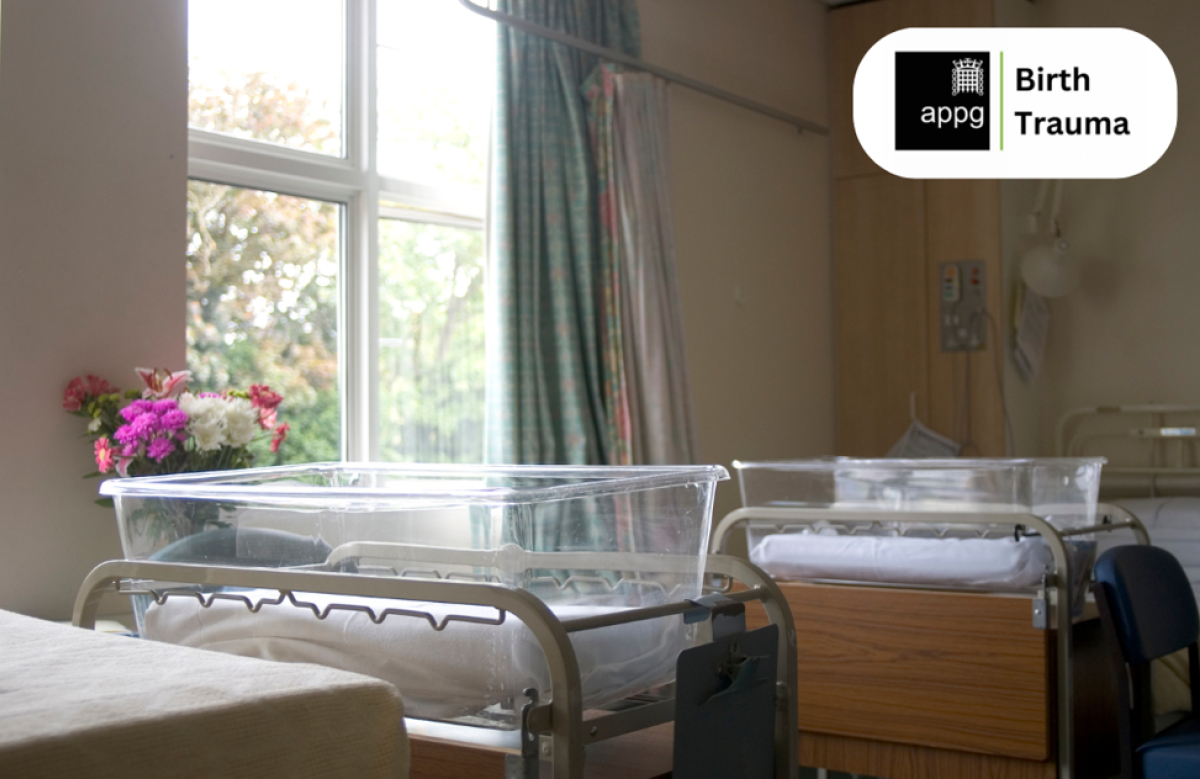
CHKS supports the recommendations of the Birth Trauma Inquiry which has called for an overhaul of the UK's maternity and specifically postnatal care.
On review of the report, Moyra Amess, Director of Assurance & Accreditation at CHKS has compiled here her four key messages from the report:
1. Prioritising Prevention and Prompt Treatment:
Prevention must be the priority to reduce the incidence of trauma and ensure better outcomes for mothers and babies. Focusing on prevention helps mitigate the life-changing damage that can lead to mental distress and depression, significantly reducing the ripple effects across women's lives. This can be achieved by ensuring women receive essential antenatal care, improving forceps and ventouse interventions, and enhancing the education of midwives. Ensuring the delivery of the Obstetric Anal Sphincter (OASI) bundle of care has already demonstrated a reduction in the rate of this trauma.
When injuries do occur, prompt treatment is essential to avoid life-changing problems such as pain and incontinence, which can lead to loss of confidence, problems at work, and diminished social lives. Prompt treatment involves listening to women and taking their concerns seriously so that problems can be investigated, and appropriate treatment sought. Early intervention is more effective, and delays augment the problems with additional mental health morbidity.
2. Supporting the carers to care:
The inquiry provided a crucial platform for women, their partners, and healthcare staff to share their stories and experiences. It is shocking to read about preventable harm and a lack of kindness and compassion. Having been a nurse myself, I can only imagine the pressure that staff must be under to lose this in the stress of the moment, or when the culture of the service has been tainted by bullying or understaffing leading to such behaviour.
Any next steps must focus on building a culture where staff feel supported and confident to be able to deliver their job safely. It goes without saying that compassion must be central to delivery of care, ensuring that each person’s pain, distress, anxiety, or need is met with humanity and kindness.
3. Reinforcing the Ockendon Report Recommendations:
In 2022, the Ockendon report presented an independent review of the Shrewsbury and Telford Hospital NHS Trust, highlighting significant challenges faced within their maternity services.
The review uncovered failings within the NHS Trust’s maternity services and made recommendations on government actions to support maternity services more widely across the UK.
The release of the Birth Trauma report strengthens further the importance of the recommendations outlined in the Ockendon Report to support improvement in maternity services across the UK. Notable recommendations from the report are:
A clear focus on safety in Maternity Units - Systemic improvements in maternity care are needed, including better training, adequate staffing levels, and fostering a culture of safety and respect.
Listening to staff, women, and families - It is vital to take the time to listen to staff and patient feedback. The Birth Trauma report, for example, provides valuable insights from women patients and their experiences, emphasising the importance of their voices in shaping improvements.
Staff training - Addressing significant staffing and training gaps within both the midwifery and medical workforce is crucial. These gaps negatively affect the operational running of the service, and comprehensive training programs are needed to ensure staff are equipped to provide high-quality care.
Managing complex pregnancies - Developing specialised protocols and ensuring access to the necessary expertise to address complex pregnancies.
Monitoring fetal wellbeing and ensuring informed consent - Women and their partners must receive expert advice about the most appropriate fetal monitoring, including the risks, benefits, and alternatives of any given procedure or intervention. This ensures that they can make informed decisions about their care.
4. Addressing Manpower Issues:
The report outlines that staffing issues remain a key component of the challenges facing maternity services within the NHS. It emphasises the need to recruit, train, and retain more midwives, obstetricians, and anesthetists to ensure safe staffing levels and to provide mandatory training on trauma-informed care.
these gaps negatively affect the operational running of the service, and comprehensive training programs are needed to ensure staff are equipped to provide high-quality care. As of Q4 2023, there were 111,000 substantively unfilled posts.
Correcting this issue will take time because the current manpower does not exist, and it takes time to train new staff. A cultural shift to make the profession more attractive and to prevent existing staff from leaving is needed
To achieve a stable workforce, the NHS must focus on improving work conditions, providing adequate support for staff well-being, and fostering a positive and supportive work environment. This will help retain current staff and attract new professionals to the field.
Conclusion: The Urgent Need for Change
The Birth Trauma Inquiry is a stark reminder of the current challenges facing maternity services across the UK and the critical need for comprehensive reforms in maternity and postnatal care.
The All-Party Parliamentary Group on Birth Trauma calls on the UK Government to publish a National Maternity Improvement Strategy, led by a new Maternity Commissioner who will report to the Prime Minister, outlining ways to enact these recommendations for improving maternity services across the UK.
We at CHKS are committed to incorporating the inquiry's recommendations into our standards of best practice. By doing so, we aim to support healthcare providers deliver safe, compassionate, and effective care for all mothers, families and their babies.
To read the full report, click here
